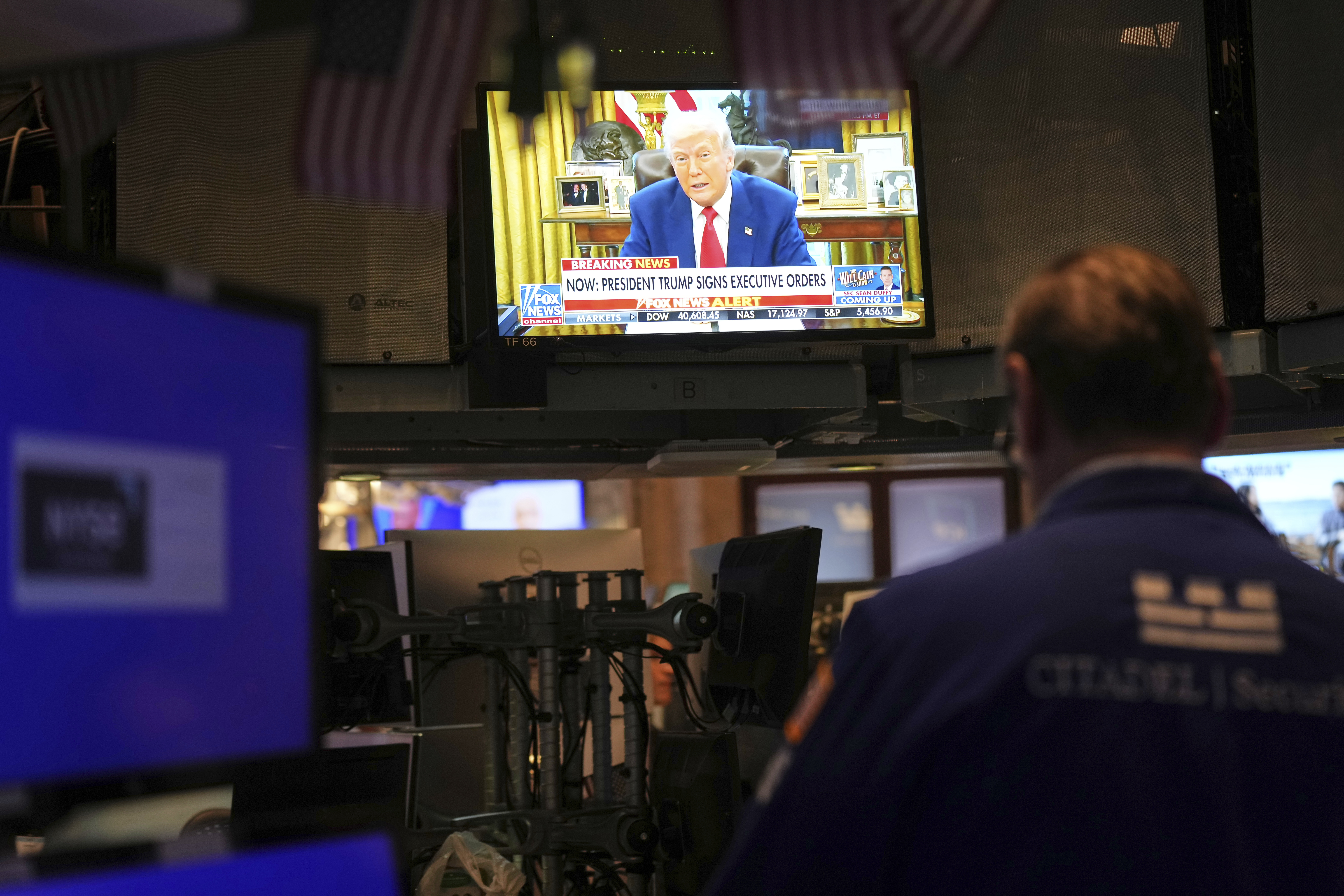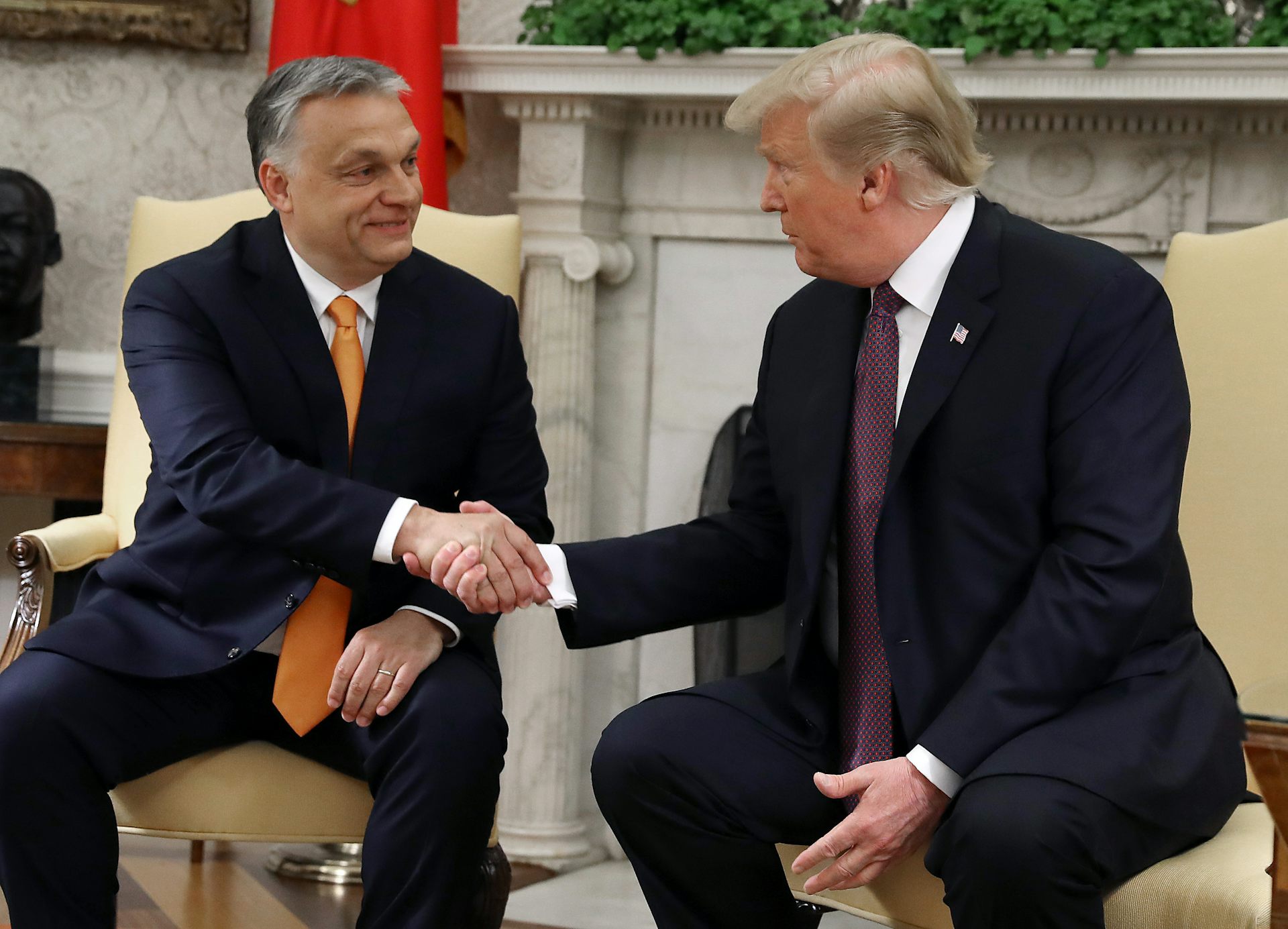Stocks Surge On Tariff Reprieve, But Recession Fears Remain

President Donald Trump’s pause on tariffs affecting dozens of U.S. trading partners unleashed euphoria on Wall Street as investors pared back losses sustained in the tumult that followed his April 2 “Liberation Day” announcement. Fears of recession remain, however.
The jubilation flowed as investors hoped there would be an armistice in the global trade war that has threatened to send the U.S. into a recession and led to a sharp selloff of government bonds that accelerated early Wednesday. The market turmoil appeared to concern Trump in a way that days of stock losses had not.
“The bond market is very tricky. I was watching it,” the president told reporters. “But if you look at it now, it’s beautiful. The bond market right now is beautiful.”
The S&P 500 climbed 9.5 percent, its largest single-day gain since 2008. The Dow Jones Industrial Average jumped by 7.8 percent and the tech-focused Nasdaq surged more than 12 percent.
Trump announced in a social media post a 90-day pause on new tariffs against every country but China. While he has yet to lock in bilateral agreements with key trading partners, his course reversal sparked optimism that harsh levies on imports from major allies may be avoided and a serious threat to the economy lifted.
“I definitely think we will not have a recession,” said Torsten Slok, chief economist at Apollo Global Management. “That risk has been removed, and that’s of course why markets are rallying so much.”
Over the last week, Wall Street power brokers had stepped up their warnings that Trump’s trade policies posed a danger to the economy. JPMorgan Chase CEO Jamie Dimon on Wednesday morning said a recession was now “a likely outcome” — and Trump indicated on his social media platform that he had watched Dimon’s appearance. And finance industry ally Bill Ackman over the weekend characterized the tariffs, which kicked in on Wednesday, as a “self-induced, economic nuclear winter.”
Overnight, after the tariffs took effect, interest rates spiked on longer-term U.S. government debt, complicating the administration’s efforts to keep borrowing costs down and raising worries about the potential for more serious market disruptions.
Upheaval in bond markets can be much more dangerous than losses on equities. That's because problems in credit markets can have a cascading effect if businesses and households aren’t able to borrow money, dealing a blow to the economy.
Shortly after 1 p.m. Eastern Time, Trump posted that he had paused all tariff increases above the 10 percent universal levy.
Ackman, whose comments had been rebuked by National Economic Council Director Kevin Hassett earlier in the week, praised the president’s pivot shortly after it was posted to Truth Social.
“This was brilliantly executed by@realDonaldTrump. Textbook, Art of the Deal,” Ackman posted on X. He later added: “.@SecScottBessent rocks!” That was a reference to Treasury Secretary Scott Bessent, who played a prominent role in trying to calm both investors and lawmakers.
Still, Trump’s surprise announcement — made less than 24 hours after so-called reciprocal tariffs affecting dozens of other countries took effect — is not being viewed as a panacea for the turmoil that’s gripped markets for much of the last two months.
A tit-for-tat trade war with China is accelerating, new taxes on pharmaceutical imports appear imminent and the president could still reject any trade deals offered by other countries. The tariffs left in place by Trump are still expected to dent GDP growth. China raised its tariffs on U.S. products to 84 percent on Wednesday morning and Trump boosted the effective rate on Chinese goods to 125 percent.
”If this persists, it will still cause significant challenges for both the U.S economy and the Chinese economy,” said Wendong Zhang, an assistant professor at Cornell University and a faculty affiliate at Cornell’s Center for China Economic Research.
The stock market surge that had followed Trump’s election to a second term was losing steam even before he unveiled his Liberation Day tariffs on April 2. As losses worsened, top analysts and investment heavyweights like Dimon and BlackRock’s Larry Fink warned that the U.S. could be headed into an era of higher inflation and lower growth.
Even so, Wall Street economists dialed back earlier calls saying the U.S. was headed toward a recession. Shortly before Trump announced the pause on Truth Social, Goldman Sachs Chief Economist Jan Hatzius told investors that the most likely outcome was that the president’s trade war would lead to a slump.
As stocks and the dollar soared on the news of a 90-day reprieve, Hatzius published an update saying the bank’s analysts were reverting back to a previous forecast for tepid growth and a 45 percent probability of recession.
That does not mean the risks that were becoming apparent to markets over the past week have dissipated. There are still underlying and potentially destabilizing challenges that could lead to further turmoil relating to U.S. trade policy and government debt.
“It takes some of the tariff pressure off, but you still have an administration that is charging forward with a plan to restructure the economy, and there will be adjustment costs associated with that,” said Tim Duy, chief economist at SGH Macro Advisors.


